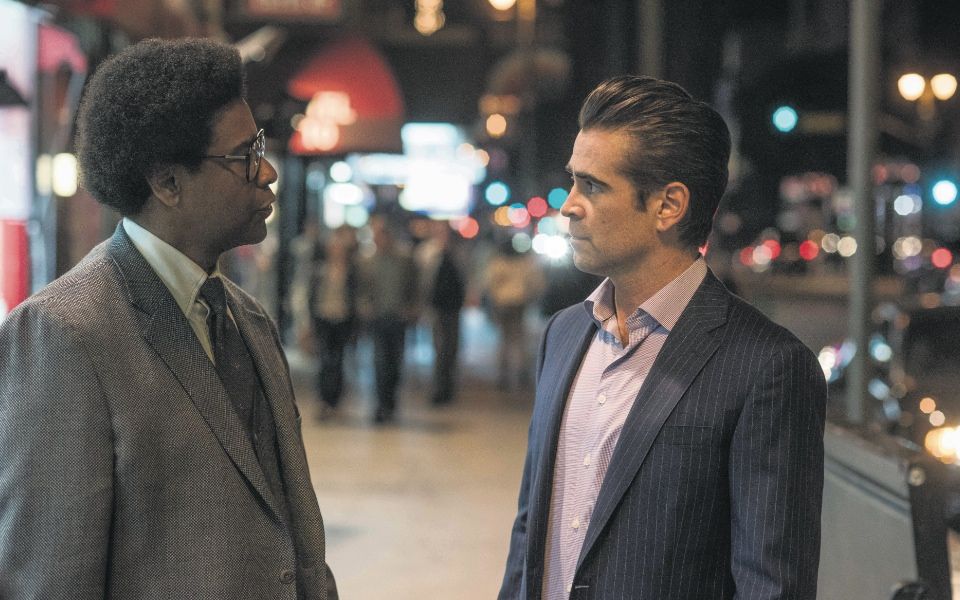Roman J Israel Esq review: Denzel Washington shines but can’t quite save this messy law drama

Roman J Israel Esq lines up its ducks – a star actor on blistering form, a timely dissection of racial bias in the US legal system, a distinctive visual style – yet manages to come home empty handed.
It’s the second feature from Dan Gilroy, following 2014’s chillingly nihilistic Nightcrawler. And while that was a star vehicle of sorts, showcasing Jake Gyllenhaal at his inscrutable best, Roman J Israel Esq takes things to a whole other level. Denzel Washington is this film’s everything, rarely off screen, his charismatic performance carrying a film that otherwise sags under the weight of the liberties it takes.
Roman is a man trapped in time, a child of the civil rights movement who became a lawyer to help further the “revolution”. His crummy apartment is a shrine to the activists and musicians who fought the good fight, his meagre existence a living record of a bygone generation. He wears his hair tall and his suits baggy. He listens to his iPod on vintage Sony headphones with fluffy orange pads. He looks like the kind of lawyer Shaft might keep on retainer.
Gilroy has some fun with this, presenting the movie as a period drama in which only one character got the memo. It has the faded, sepia tinge of a Polaroid photograph, and when Roman is on-screen, afro silhouetted against the Los Angeles street lights, it looks like it’s been posted straight from 1979.
Washington puts in something approaching a career best performance, building up layers of awkward ticks and stutters, straying far from his charming comfort zone. His Best Actor Oscar nod is well earned.
His character is fundamentally good, principled and passionate but also abrasive and socially inept (it’s implied he’s on the autistic spectrum). He’s kept away from clients, and spends every spare moment working on a lawsuit he thinks will derail a plea bargain system that profits from sending young black men spiralling down the plug-hole of society.
When Roman’s boss keels over from a heart attack, however, he’s forced to look modern life in the eye, and he does not like what he sees. He’s baffled by the nuances of today’s “woke” young activists and aghast at the dearth of empathy in the world of corporate law. He’s incapable of changing with the times, still calling black women “sister”, for instance, which isn’t always taken in the spirit it’s intended.
But Gilroy’s movie starts to unravel following a road to Damascus moment when Roman decides to pursue self-interest over principle, leading to an absurd overnight transformation that’s so implausible, so silly, that it overshadows everything that’s come before.
Not only does he change physically – including updating those headphones – he also meets a love interest, makes a load of cash, moves house, gets in trouble at work, gets promoted… All in three weeks. Gilroy wants to sell epiphanies and turmoil but I’m not buying. His film also clanks into a strange new gear, adopting the tropes of a hard-boiled crime thriller and sidelining the more interesting parts of Roman’s character.
There’s a belated attempt to tie it all up, but by that stage it’s already lost, and not even Washington can carry it any further.
